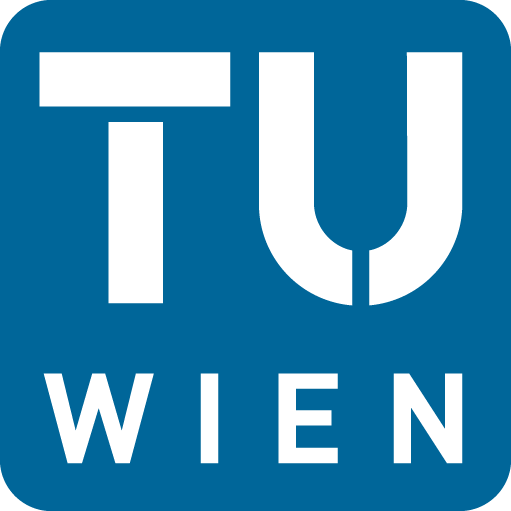DC Field
Value
Language
dc.contributor.author
Burger, Isabella
-
dc.contributor.author
Schmal, Matthias
-
dc.contributor.author
Fourtis, Lukas
-
dc.contributor.author
Peikert, Kathrin
-
dc.contributor.author
Suster, Christoph
-
dc.contributor.author
Stanetty, Christian
-
dc.contributor.author
Schnalzer, Dominik
-
dc.contributor.author
Birner-Grünberger, Ruth
-
dc.contributor.author
Mach, Robert
-
dc.contributor.author
Mach-Aigner, Astrid
-
dc.contributor.author
Derntl, Christian
-
dc.contributor.author
Schittmayer-Schantl, Matthias
-
dc.date.accessioned
2025-01-02T16:04:07Z
-
dc.date.available
2025-01-02T16:04:07Z
-
dc.date.issued
2024-09-23
-
dc.identifier.citation
<div class="csl-bib-body">
<div class="csl-entry">Burger, I., Schmal, M., Fourtis, L., Peikert, K., Suster, C., Stanetty, C., Schnalzer, D., Birner-Grünberger, R., Mach, R., Mach-Aigner, A., Derntl, C., & Schittmayer-Schantl, M. (2024, September 23). <i>Discovery of a novel antifungal compound, ilicicolin K, through genetic activation of the ilicicolin biosynthetic pathway in Trichoderma reesei</i> [Conference Presentation]. APMRS/CEEPC APMRS-CEEPC 2024, Wien, Austria. http://hdl.handle.net/20.500.12708/207567</div>
</div>
-
dc.identifier.uri
http://hdl.handle.net/20.500.12708/207567
-
dc.description.abstract
Introduction
In the quest to discover novel antifungal agents and new antifungal production processes, we investigated the biosynthetic gene cluster (BGC) for ilicicolin H in the fungus Trichoderma reesei. While the BGC is silent under standard cultivation conditions, we achieved to activate it by over-expressing its transcription factor TriliR.
Methods
Successful BGC activation was confirmed by RT-qPCR, proteomic and metabolomic analyses. Molecular networking led to the identification of related ilicicolin products.
Results and Discussion
Metabolomic profiling upon BGC expression revealed high-yield production of the supposed main product ilicicolin H. To elucidate the functionality of this BGC, we employed a combination of overexpression and deletions of individual biosynthetic gene cluster constituents. Deletion of triliA, encoding for the core polyketide synthase TriliA, completely ceased product formation, as expected. In contrast to previous heterologous expression experiments, we could demonstrate that the epimerase TriliE is necessary for the formation of ilicicolin H in the native host.
While we hardly observed any of the previously reported side- or shunt products associated with heterologous ilicicolin H expression, we discovered a novel member of the ilicicolin family using a metabolomic molecular networking approach. This new compound, which we termed ilicicolin K, is expressed in substantial amounts in the genetically engineered Trichoderma reesei, enabling us to elucidate its structure by NMR. The structure of ilicicolin K is similar to that of ilicicolin H but differs by an additional hydroxylation and an intramolecular etherification of the hydroxyl group at the pyridine towards the tyrosine moiety of the molecule. Initial tests of ilicicolin K showed antifungal activity against Saccharomyces cerevisiae and Aspergillus nidulans with a similar minimum inhibitory concentration as ilicicolin H.
Innovative aspects
• High-yield expression of ilicicolin H by genetic BGC activation in a native host for the first time
• Discovery of a novel antifungal compound, ilicicolin K
en
dc.description.sponsorship
FWF - Österr. Wissenschaftsfonds
-
dc.language.iso
en
-
dc.subject
natural product
en
dc.subject
mass spectrometry
en
dc.subject
NMR spectroscopy
en
dc.title
Discovery of a novel antifungal compound, ilicicolin K, through genetic activation of the ilicicolin biosynthetic pathway in Trichoderma reesei
en
dc.type
Presentation
en
dc.type
Vortrag
de
dc.contributor.affiliation
TU Wien, Austria
-
dc.contributor.affiliation
TU Wien, Austria
-
dc.relation.grantno
P 34036-B
-
dc.type.category
Conference Presentation
-
tuw.publication.invited
invited
-
tuw.project.title
Identifizierung und Charakterisierung von RiPPs aus Pilzen
-
tuw.researchinfrastructure
Zentrum für Kernspinresonanzspektroskopie
-
tuw.researchTopic.id
M6
-
tuw.researchTopic.name
Biological and Bioactive Materials
-
tuw.researchTopic.value
100
-
tuw.publication.orgunit
E164-01-3 - Forschungsgruppe Bioanalytik
-
tuw.publication.orgunit
E166-05-1 - Forschungsgruppe Synthetische Biologie und Molekulare Biotechnologie
-
tuw.publication.orgunit
E163-03-4 - Forschungsgruppe Bioorganische Synthesechemie
-
tuw.author.orcid
0000-0001-6419-1270
-
tuw.author.orcid
0000-0002-3592-4882
-
tuw.author.orcid
0000-0001-7692-6932
-
tuw.author.orcid
0009-0003-0469-197X
-
tuw.author.orcid
0000-0003-3950-0312
-
tuw.author.orcid
0000-0003-2375-7244
-
tuw.author.orcid
0000-0002-7575-2317
-
tuw.author.orcid
0000-0002-6440-2100
-
tuw.author.orcid
0000-0003-3249-655X
-
tuw.event.name
APMRS/CEEPC APMRS-CEEPC 2024
en
tuw.event.startdate
23-09-2024
-
tuw.event.enddate
25-09-2024
-
tuw.event.online
On Site
-
tuw.event.type
Event for scientific audience
-
tuw.event.place
Wien
-
tuw.event.country
AT
-
tuw.event.institution
APMA
-
tuw.event.presenter
Burger, Isabella
-
wb.sciencebranch
Chemie
-
wb.sciencebranch
Pharmazie, Pharmakologie, Toxikologie
-
wb.sciencebranch
Industrielle Biotechnologie
-
wb.sciencebranch.oefos
1040
-
wb.sciencebranch.oefos
3012
-
wb.sciencebranch.oefos
2090
-
wb.sciencebranch.value
50
-
wb.sciencebranch.value
20
-
wb.sciencebranch.value
30
-
item.cerifentitytype
Publications
-
item.languageiso639-1
en
-
item.fulltext
no Fulltext
-
item.openairetype
conference paper not in proceedings
-
item.openairecristype
http://purl.org/coar/resource_type/c_18cp
-
item.grantfulltext
none
-
crisitem.project.funder
FWF - Österr. Wissenschaftsfonds
-
crisitem.project.grantno
P 34036-B
-
crisitem.author.dept
E164-01-3 - Forschungsgruppe Bioanalytik
-
crisitem.author.dept
E166-05-1 - Forschungsgruppe Synthetische Biologie und Molekulare Biotechnologie
-
crisitem.author.dept
E166-05-1 - Forschungsgruppe Synthetische Biologie und Molekulare Biotechnologie
-
crisitem.author.dept
E166-05-1 - Forschungsgruppe Synthetische Biologie und Molekulare Biotechnologie
-
crisitem.author.dept
E163-03-4 - Forschungsgruppe Bioorganische Synthesechemie
-
crisitem.author.dept
E163-03-4 - Forschungsgruppe Bioorganische Synthesechemie
-
crisitem.author.dept
E163-03-4 - Forschungsgruppe Bioorganische Synthesechemie
-
crisitem.author.dept
E164-01 - Forschungsbereich Imaging und Instrumentelle Analytische Chemie
-
crisitem.author.dept
E166 - Institut für Verfahrenstechnik, Umwelttechnik und technische Biowissenschaften
-
crisitem.author.dept
E166-05 - Forschungsbereich Biochemische Technologie
-
crisitem.author.dept
E166-05-1 - Forschungsgruppe Synthetische Biologie und Molekulare Biotechnologie
-
crisitem.author.dept
E164-01-3 - Forschungsgruppe Bioanalytik
-
crisitem.author.orcid
0000-0001-6419-1270
-
crisitem.author.orcid
0000-0002-3592-4882
-
crisitem.author.orcid
0000-0001-7692-6932
-
crisitem.author.orcid
0009-0003-0469-197X
-
crisitem.author.orcid
0000-0003-3950-0312
-
crisitem.author.orcid
0000-0003-2375-7244
-
crisitem.author.orcid
0000-0002-7575-2317
-
crisitem.author.orcid
0000-0002-6440-2100
-
crisitem.author.orcid
0000-0003-3249-655X
-
crisitem.author.parentorg
E164-01 - Forschungsbereich Imaging und Instrumentelle Analytische Chemie
-
crisitem.author.parentorg
E166-05 - Forschungsbereich Biochemische Technologie
-
crisitem.author.parentorg
E166-05 - Forschungsbereich Biochemische Technologie
-
crisitem.author.parentorg
E166-05 - Forschungsbereich Biochemische Technologie
-
crisitem.author.parentorg
E163-03 - Forschungsbereich Organische und Biologische Chemie
-
crisitem.author.parentorg
E163-03 - Forschungsbereich Organische und Biologische Chemie
-
crisitem.author.parentorg
E163-03 - Forschungsbereich Organische und Biologische Chemie
-
crisitem.author.parentorg
E164 - Institut für Chemische Technologien und Analytik
-
crisitem.author.parentorg
E150 - Fakultät für Technische Chemie
-
crisitem.author.parentorg
E166 - Institut für Verfahrenstechnik, Umwelttechnik und technische Biowissenschaften
-
crisitem.author.parentorg
E166-05 - Forschungsbereich Biochemische Technologie
-
crisitem.author.parentorg
E164-01 - Forschungsbereich Imaging und Instrumentelle Analytische Chemie
-
Appears in Collections:

